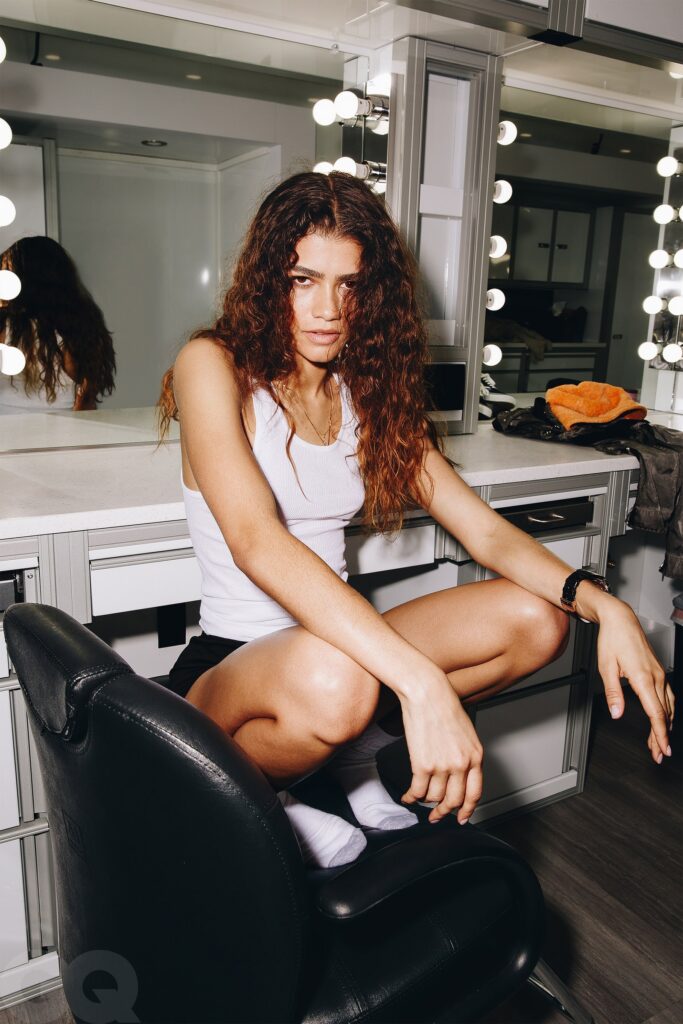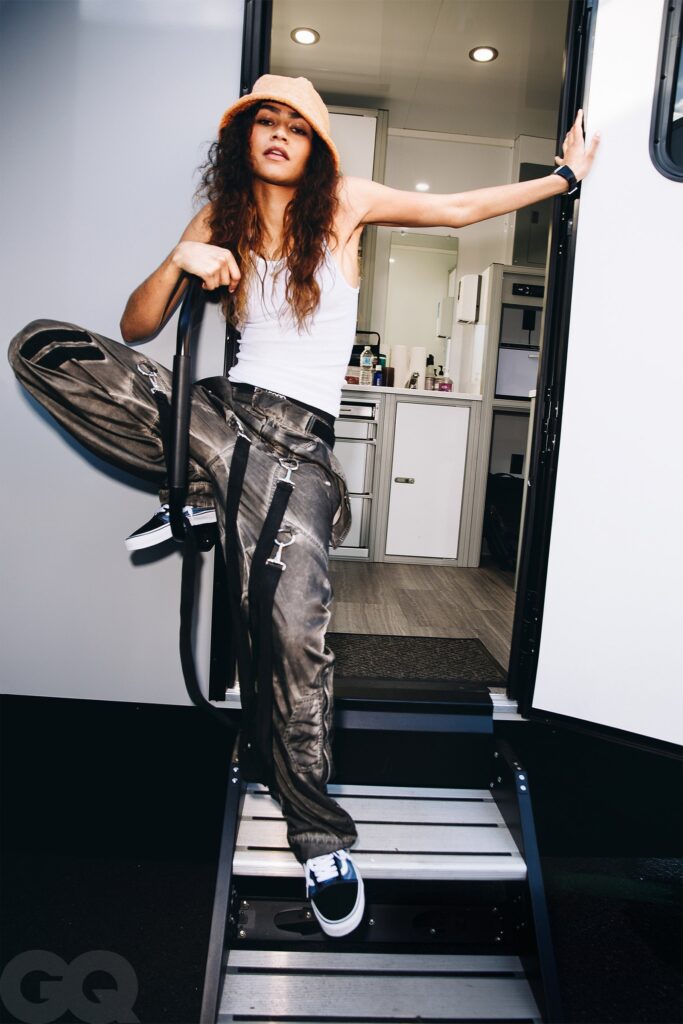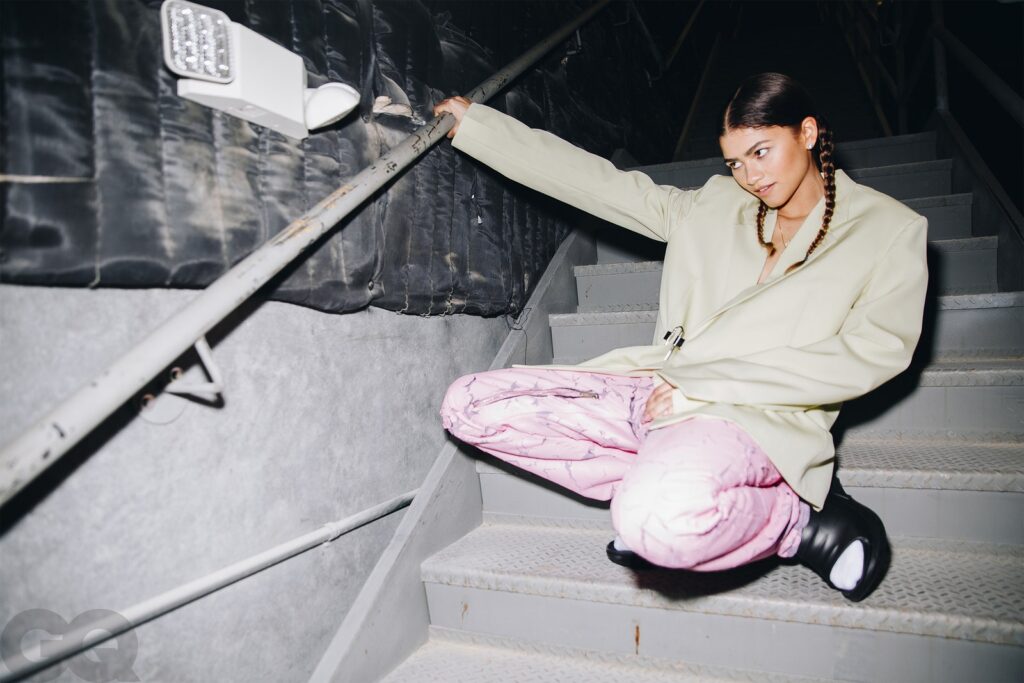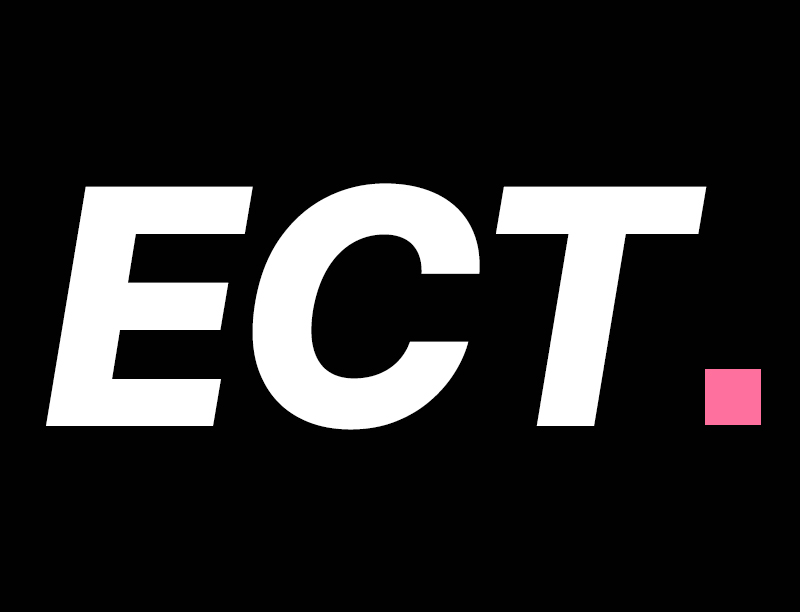We are pretty excited about Zendaya’s role as “Marie” in the new Netflix film “Malcolm and Marie” so her conversation with GQ was right on time. Turns out Z has had a few offers on the table but she wasn’t impressed by any of the scripts.
She wanted a challenge and this movie was it! Read below:
It feels curious, then, that while audiences are spending the pandemic returning to escapist comfort food like The Office, Zendaya has instead gravitated to the rawest, most emotionally rigorous role of her career yet.
She is excellent in Euphoria, but Rue is part of a bigger picture; Malcolm & Marie is just her and Washington, in the kitchen, on the couch, in the bedroom, on the patio, lighting their lives on fire.
Rue spends her time on the show trying to evade emotions, to slide past them, to feel ashamed if she lashes out.
Marie is a complete 180, someone who wants to cut the bullshit. She’s not chatty, but she’s willing to say whatever it takes until she feels like she’s been heard.

“[Marie] gave me an opportunity to use these words in a way,” Zendaya says when I wonder aloud what drew her to the role. “I don’t yell.
I’m not a very argumentative person, but it’s nice to just release shit and be able to—” she pauses here to consider what she actually means.
“I don’t know… I guess emote would be the word? To just use her as this vessel to just get shit out that maybe I had pent up or hadn’t said.”
As a kid growing up in Oakland—long before she was thrown into the Disney machine and made it her own—Zendaya was so notoriously shy that her parents sought counsel on how to manage her affliction.
As an adult, she says, she’s gotten better about speaking her mind: “With my family and friends, I can go back and forth on a topic for no reason.
I’m not actually winning anything here, but I like to go back and forth just to make sure that my point is heard, make sure my point has gotten across, which is similar, in many ways, to Marie.”

The role was exciting because it offered something more than the passive girlfriend or an accessory in someone else’s narrative.
In the prior year, Zendaya received a ton of job offers, but nothing meaty was coming in. “It’s not necessarily that any of [the scripts] were bad or something like that,” she says.
“I just felt like a lot of the roles that I was reading, specifically female roles, were just like, I could have played them all as the same person and it wouldn’t have mattered, if that makes sense.” Or, to put it differently: None of them challenged her.
“The best way to describe it is just like, they’d usually serve the purpose of helping the male character get to where they need to go, do what they need to do.
They don’t really have an arc of their own,” she says. “And they usually feel very one-dimensional in the sense that there’s not a lot of layers to them, meaning they all seem very kind of like the same person over and over and over again.
It would have been great and it would have been fine, but I wouldn’t have grown at all.”

That last part is what’s most important to her.
There is an unknowable quality to Marie, and by extension Zendaya, but also a delightful playfulness that showcases the actress’s range.
In one memorably sweet scene, she puts on a “white voice” to tease her boyfriend about all his new white indie fans, the kind who would likely try to seek him out on Letterboxd.
(Malcolm, as a character, is literally the Tisch student you’d never want to text back.) But the movie is arguably at its most revealing when the characters vocalize their insecurities as Black creatives navigating white corporate Hollywood—what it feels like to miss out on a job or on your moment.

“Those conversations are definitely conversations that Sam and I have had,” she says, “because a lot of it was inspired by feelings of limitation for Black creatives that are not put on other people. And what that looks like, and what that feels like as a creative, when you just want to make art.”
Zendaya was transcendent: As Marie, she talked in menacing tones about what relapsing would feel like, what caving into the darkness would mean for herself, Malcolm’s script, their relationship.
The material is raw and sensitive, and Zendaya wielded it with an almost malevolent unpredictability. She flashes a knife to make her point; Washington basically recoils watching her.
Read the entire editorial here.
And watch the trailer for Malcolm and Marie below:
You’ll also like:
Viola Davis And Zendaya Stun Rocking Protective Styles On Their Latest Covers
Zendaya Makes History As Youngest Lead-Actress Drama Emmy Winner
Zendaya Shares How She Is Dealing With Anxiety During Quarantine








